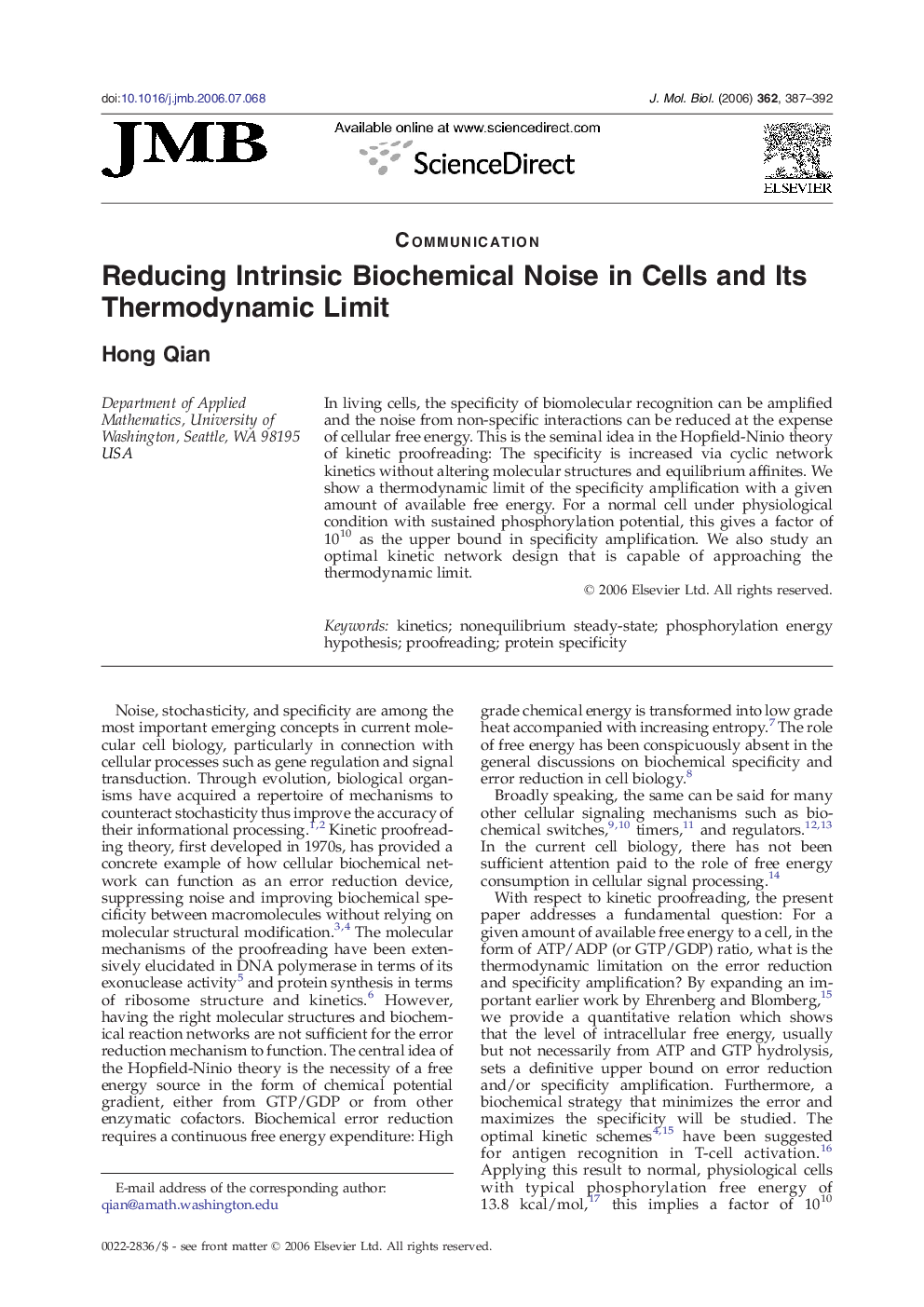| Article ID | Journal | Published Year | Pages | File Type |
|---|---|---|---|---|
| 2189371 | Journal of Molecular Biology | 2006 | 6 Pages |
In living cells, the specificity of biomolecular recognition can be amplified and the noise from non-specific interactions can be reduced at the expense of cellular free energy. This is the seminal idea in the Hopfield-Ninio theory of kinetic proofreading: The specificity is increased via cyclic network kinetics without altering molecular structures and equilibrium affinites. We show a thermodynamic limit of the specificity amplification with a given amount of available free energy. For a normal cell under physiological condition with sustained phosphorylation potential, this gives a factor of 1010 as the upper bound in specificity amplification. We also study an optimal kinetic network design that is capable of approaching the thermodynamic limit.
